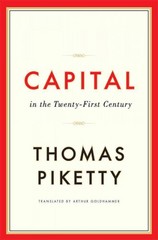Question
You have collected the following data on output and total variable costs: Q TVC ($) TC ($) MP AVC AC 10 24,450 20 39,600 30
You have collected the following data on output and total variable costs:
Q
TVC ($)
TC ($)
MP
AVC
AC
10
24,450
20
39,600
30
48,150
40
52,800
50
56,250
60
61,200
70
70,350
80
86,400
90
112,050
100
150,000
a.Identify the range of output exhibiting increasing returns (increasing MP), and the range exhibiting diminishing returns (decreasing MP).
b.Current fixed costs for the company equal $14,300. Draw two graphs, both with Q on the horizontal axis: one graph shows TVC and TC, and the other shows AVC, AC, and MC.
c.Suppose that the government imposes a $11,500 property tax hike on all businesses; how will that affect your two graphs; i.e., which cost curves will be affected and how?
d.Suppose instead that the government considers your production process to be polluting, and imposes a $210 tax per unit produced (replacing the property tax in the previous question). How does this tax increase compare to the property tax increase, in terms of the effect on your company's cost curves?
e.Your boss says "either of these taxes is going to force us to change our production levels." Given what you know about optimization analysis, how would you respond?
QYou are HR director for a growing architecture firm in New Haven, Connecticut, which currently has need of drafting 36 blueprints every hour. Each of your company's architects can create on average three blueprints per hour. You are considering hiring six drafters to shoulder the load; each drafter is slower than the architects and can create on average only two blueprints per hour. You scan the current wages in the New Haven area (https://www.bls.gov/oes/current/oessrcma.htm) and notice that the architects in your company earn the local occupational median wage of $39.85 per hour, but that the prospective six drafters will likely want to get paid their local occupational median wage of $28.78 per hour.
a.Would your company save money in the creation of the 36 blueprints by hiring the six new drafters and firing some architects?
b.The Bureau of Labor Statistics projects that employment of drafters over the next decade will drop by 2.5%, compared to an increase of 0.8% for architects (https://www.bls.gov/emp/tables/emp-by-detailed-occupation.htm); your company assumes that this will reduce drafter wages down to $25.75 due to the drop in demand for them. If the other values remain the same (architect wage and speed, need for 36 blueprints per hour), would the company save money in the creation of the 36 blueprints by hiring six drafters and firing some architects?
QYou work for a company that is being accused of monopoly behavior, given its large size. Comparisons are made to the industry standard, where each establishment has on average about 16.7 employees. Your company is bigger than that, but you want to provide evidence against the monopoly charges.
a.You've collected data at different times in your company's history, when you had different amounts of capital.
In 2010, SRATC = 3.6Q2 - 110Q + 4,500
In 2015, SRATC = 2.0Q2 - 260Q + 11,000
In 2020, SRATC = 2.8Q2 - 270Q + 8,100
Plot these three different SRATC curves (have Q go from 0 to 100 in units of 5; make the maximum on the vertical axis be 6,000), and discuss how (and possibly why) your company has changed since 2010 in terms of its size.
b.Make another column labeled "LRATC" that includes three points: 2010's SRATC when Q = 5; 2020's SRATC when Q = 50, and 2015's SRATC when Q = 90. Plot these three points on your graph (be sure to show, don't hide, the dots) and add a 2nd-degree polynomial trendline to represent your company's LRATC.
c.In a more competitive industry with smaller firms, typical LRATC curves follow LRATC = 6.0Q2 - 90Q + 3,000. Using all available information in this question, present an argument that could be used to justify your company's size.
Step by Step Solution
There are 3 Steps involved in it
Step: 1

Get Instant Access to Expert-Tailored Solutions
See step-by-step solutions with expert insights and AI powered tools for academic success
Step: 2

Step: 3

Ace Your Homework with AI
Get the answers you need in no time with our AI-driven, step-by-step assistance
Get Started


